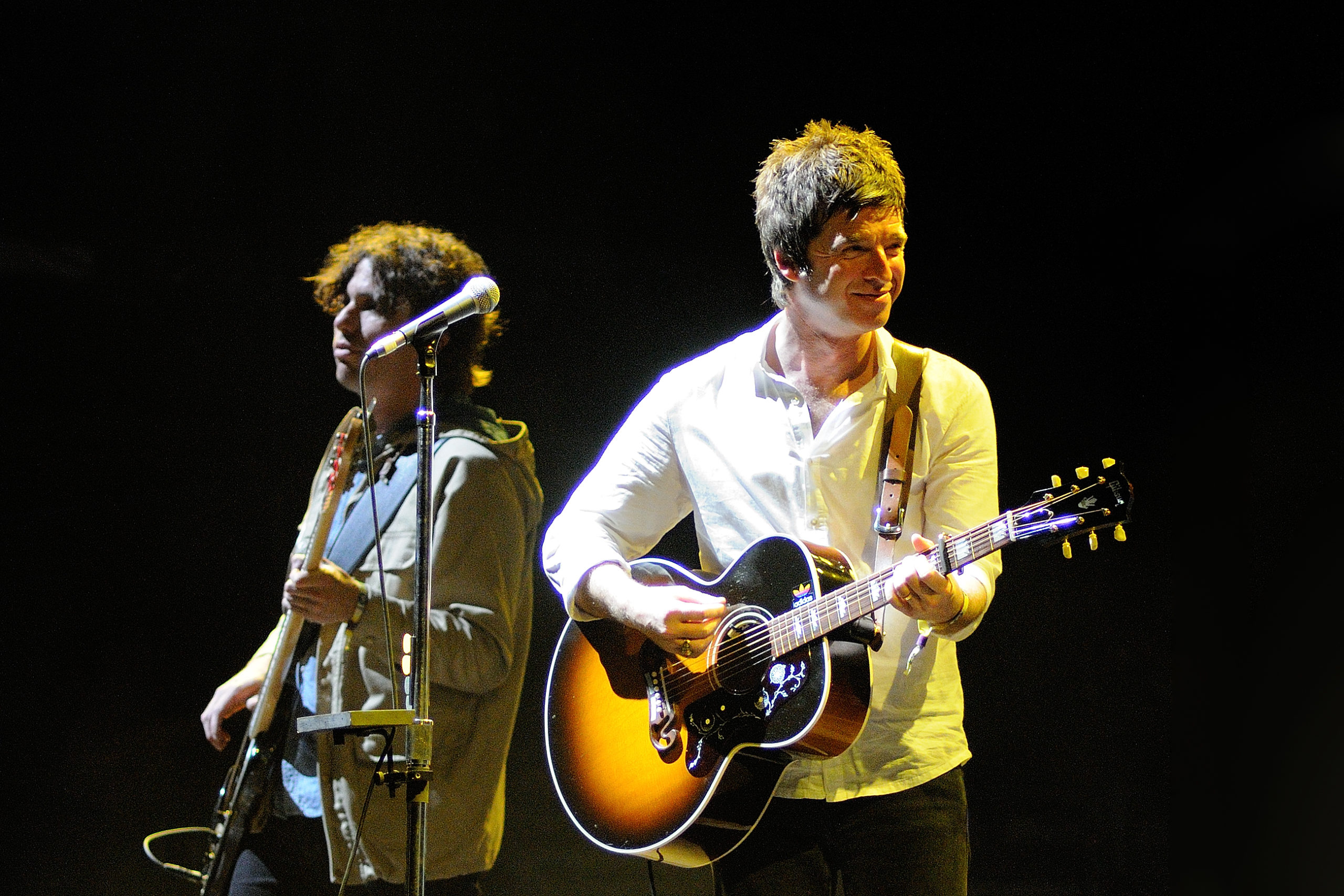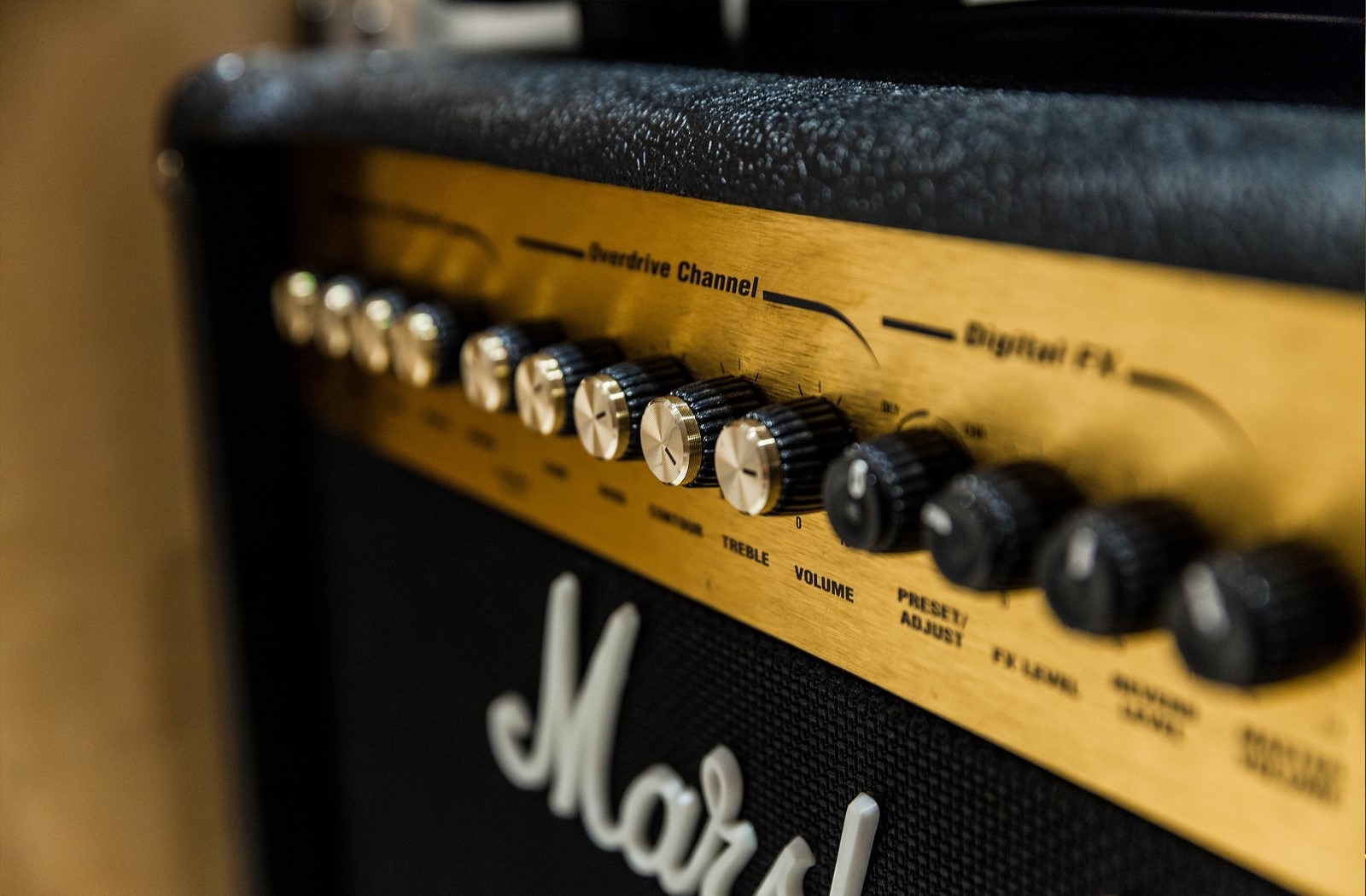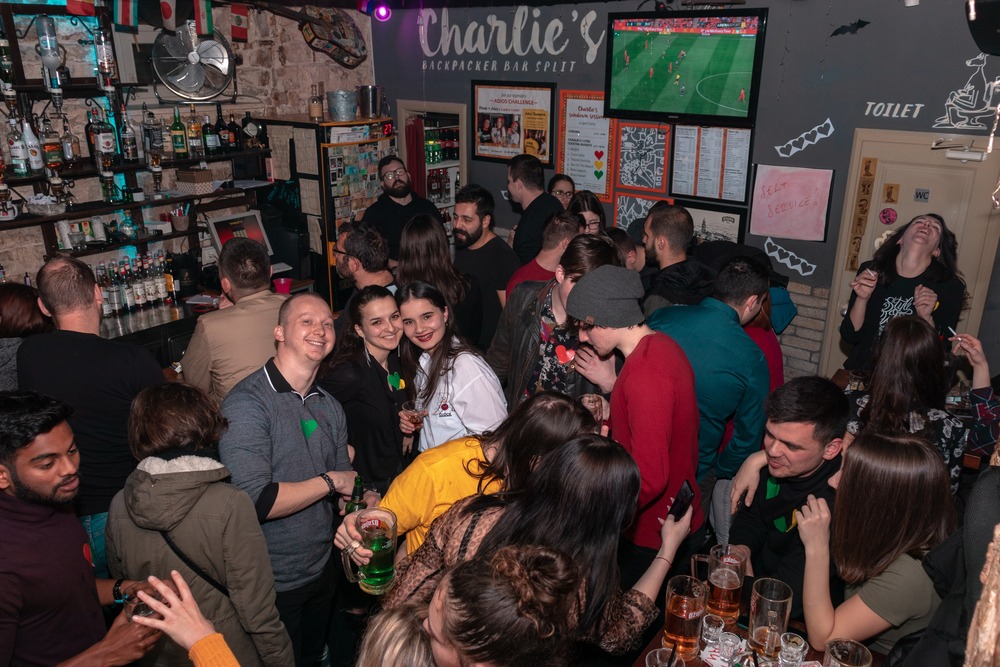
When David Crosby passed away earlier this year, there was an understandable focus on the artist, but also his iconic bands – first, with the Byrds, and then, Crosby, Stills, Nash, and later Young. Crosby’s career – like many musicians of his era – was punctuated with conflict, especially with his band mates.
Similar stories are common to so many bands from the golden age of what we now call Classic Rock. Fleetwood Mac is a similar but different story. As time has gone on, and we remember the late Christine McVie, who also passed away during the past few months, we also hear the inevitable stories of deceit, passion, jealousies, and a rainbow of other emotions that come from being in a band.
Some of these are now being dramatized in the new Amazon Prime TV series, “Daisy Jones & The Six” (pictured below) loosely based on the (mis)adventures, relationships, and dramas that dotted Fleetwood Mac’s amazing run.
We’ve seen that art imitates life – or is the other way around? – with “The Monkees,” that send up of a 60’s rock band on TV that went on to become hit makers in their own right. Media and music have always had a symbiotic way of reflecting – or banging off one another.
(You might enjoy this ranking of the best songs recorded by fictitious bands that recently appeared in Rolling Stone. By the way, their #1 song was “That Thing You Do” by the Wonders from the synonymously titled 90’s movie starring Tom Hanks.)

In many ways, bands are like marriages – but with more people. And life in recording studios and on the road can be like band members being locked in a submarine that seems to get smaller with each passing year. It is no wonder so many bands break up or suffer from acrimony over the years, even if they achieve stardom. Like managing any close, long-term relationship, it requires work, patience, tolerance, and often empathy – qualities that are often in short supply.
We saw this up close and personal a year or so ago with Disney+’s “Get Back,” the revealing and often painful look at the Beatles’ recording of “Let It Be” in 1970, shortly before the band permanently broke up.
Similar to that submarine analogy, the Beatles were cooped up in a studio for weeks, trying to give birth to an album. It was a rare look at not only the process, but the pain that often comes when highly creative and egocentric people are together for a long time.
Remarkably many bands somehow endured, often in spite of themselves and their differences. And so many of them went on to become seminal groups, honored in various Hall of Fames. Many are still very much roadworthy today.
Bruce Springsteen & the E Street Band are a case in point. Their enigmatic leader, of course, recently cashed in, selling his immense catalog of songs for well north of $500 million. The current tour is said to be a financial infusion for the band.
enigmatic leader, of course, recently cashed in, selling his immense catalog of songs for well north of $500 million. The current tour is said to be a financial infusion for the band.
Many music groups have been family affairs, and speaking from personal experience, that’s not always an easy lift. For every Allman Brothers Band where Duane and Gregg were said to get along well, band mate Dicky Betts provided no shortage of drama.

Then there were the Davies (Ray and Dave in the Kinks), and the notorious Gallaghers – Noel and Liam of Oasis – where the siblings can’t stand to be in the same country at the same time, leaving millions on the table in the process (pictured).
Fans – and even many of us in the business – often don’t understand why acrimonious band members simply cannot put their long-held, festering differences aside to please all of us with their music. But that’s easier said than done as most of us know inside our own families where get-togethers over various holidays can be uncomfortable or downright toxic.
Maybe that’s why a recent story in Hypebot by Bruce Houghton jumped out at me. “Is being in a band obsolete? Solo artists dominate the charts” was an eye-opener for me.
It turns out a paltry three songs by actual bands actually made the Billboard Top 100 in the U.S. in 2022 (In the UK, it was just four). With the exceptions of Glass Animals, Imagine Dragons and One Republic, last year’s hit makers were solo acts.
For an industry that was often always about groups, from Motown to the British Invasion to Heavy Metal acts to stadium bands, this solo swing is a curiosity. Based on Houghton’s analysis, it may not be an anomaly, but a trend.
Here’s why:
1. Social media is a solo act – For nearly two decades now, social has allowed musicians to spread their music and tell their stories. It has also connected fans with their favorite music makers. And as Houghton reminds us, being on Facebook, Twitter, Instagram, or TikTok is very much a singular form of expression.
2. Social media is where discovery now happens – A&R guys and gals are spending more time checking out music and those who make it online rather than the more tedious act of hitting the clubs. COVID, of course, accelerated that process.
3. Technology is a driver – As Houghton points out, a single person using a platform like Garage Band or any of the available tools can be their own band. And if necessary, collaboration with other writers, lyricists, producers, or musicians is just a Zoom away.
using a platform like Garage Band or any of the available tools can be their own band. And if necessary, collaboration with other writers, lyricists, producers, or musicians is just a Zoom away.
4. It’s cheaper – From rehearsal space to equipment to the tour bus and roadies, being in a band is like starting up a hockey team. For younger artists, going solo is far more cost-effective, and the spotlight is easier to capture.
5. It’s easier – Clearly, managing your own emotions, demons, and angst when you’re a solo act is easier than multiplying it all by five, plus staff. It may be less inspiring to be on your own creatively, but from the standpoint of harmony, it is exponentially easier.
Houghton laments the lack of bands in today’s music landscape. There is something truly electric when different musicians collaborate on writing, recording, and performing music.
It strikes me radio station “families” may be undergoing a similar process, as more and more, people are working on their own, often from home.
It is harder to generate a sense of camaraderie on the air or with sales staffs when actual staff meetings are a rarity. Business over Zoom may be efficient, safe, and even effective, but it is lacking in the chemistry department.
 I am dating myself, but I vividly remember many at the station calling it quits late in the day and hanging out after work at a nearby watering hole or on the softball diamond after a long day’s work. Oftentimes, the group would be an eclectic one, including personalities, account execs, managers, and people from departments like traffic, promotions, or engineering. We talked work, it got personal, there were inappropriate jokes, and also alcohol-powered brainstorms. In its own way, these interludes were fun, connective, and often productive. And they contributed to a team spirit most winning stations had.
I am dating myself, but I vividly remember many at the station calling it quits late in the day and hanging out after work at a nearby watering hole or on the softball diamond after a long day’s work. Oftentimes, the group would be an eclectic one, including personalities, account execs, managers, and people from departments like traffic, promotions, or engineering. We talked work, it got personal, there were inappropriate jokes, and also alcohol-powered brainstorms. In its own way, these interludes were fun, connective, and often productive. And they contributed to a team spirit most winning stations had.
I took those impromptu meet-ups for granted at the time, but it’s hard to miss how rare they are today.
Now, I know what some of you are thinking – there used to be actual staffs of a few dozen people at many stations, all spending most of their days (and often nights) inside the same physical space.
Downsizing and COVID may have taken their toll on radio’s esprit de corps – that common loyalty, pride, and togetherness groups of people can only achieve when they are together working through their collective opportunities and challenges they face in a 24/7 “always on” environment.
And so often, most people working at music stations, in particular, were in their twenties, often unencumbered by much in the way of responsibilities at home. Work from home, virtual meetings, and even voicetracking have become common efficiencies we may not be able to live without, but they also isolate us from others.
responsibilities at home. Work from home, virtual meetings, and even voicetracking have become common efficiencies we may not be able to live without, but they also isolate us from others.
Things change, and radio is no exception. When it comes to the competition, the audience, the sales and marketing process, and so many other day-to-day activities, it’s a different industry today, especially if your first job was pre-1990.
 And through the years, especially amplified by new technology and a global pandemic, we’re facing that loss of camaraderie that was once part of the common landscape of working at a station.
And through the years, especially amplified by new technology and a global pandemic, we’re facing that loss of camaraderie that was once part of the common landscape of working at a station.
There are many exceptions, of course, and I can think of a number of stations where I still get that flashback rush of buzz, electricity, and commotion when I walk through the doors.
But more and more, it’s quieter, emptier, and less frenetic.
We’re all becoming solo acts.
- The Hazards Of Duke - April 11, 2025
- Simply Unpredictable - April 10, 2025
- Flush ‘Em Or Fix ‘Em?What Should Radio Do About Its Aging Brands? - April 9, 2025




Spot on, Fred.
A great radio station sounds and feels like an active community. It’s why fans want to hang out and be part of it all.
That vibe can’t be manufactured. It can only come to life through real people spending time together and building relationships. AI software and remote voice trackers will never have that same allure.
I heard a short interview with Clarence Clemons the other day, talking about recording his solo in “Jungleland” for Springsteen. It took 16 hours to get it right (or at least to Bruce’s satisfaction). Clarence said it was exhausting and frustrating, but he wouldn’t have changed a thing, because of the collaborative process it took to make a masterpiece.
You built some truly great ones along the way, Carl.
Fred, I follow a few youtuber guitarists. What they do to attain popularity is a lot different than what great guitarists did– and still do– making records.
These internet guys and gals show off their technique, playing flashy solos that impress to get eyeballs, sometimes sweetened (dubbed over mistakes). It’s fine, for what it is– essentially a musical performance done by one’s self and filmed– hmm, sounds like another popular internet industry more than a little. They have been practicing for years for this, alone in their bedroom.
That’s a whole lot different than making records, a collaborative art form wherein the musicians have to be musical on the spot (under time and money pressure in a studio or live) within a song/band structure, and contribute to an overall feel and vision.
IMO, as talented as they are, many of this new youtube guitar slinger generation will be forgotten as soon as someone slicker shows up to sell ads.
Love your writing, Fred. Miss ya.
Thanks so much, Gary. Means a lot. Hope all’s well.
Isolation is a huge reason why so many people are experiencing mental health issues these days. The Covid Generation missed valuable experience learning how to function in society and have become much more inwardly directed. Music suffers from the lack of collaboration. How many of today’s hits are the product of one artist looping tracks and inserting electronic instrumentation, missing the creative input of actual musicians that can immeasurably enhance the overall performance? I also heartily agree with your viewpoint regarding radio. Stations these days have a lot of empty space as people continue to work remotely. There’s a serious lack of brainstorming and cross-pollination of ideas. We take lots of “inclusive” training but rarely spend time with people in other departments and their concerns and viewpoints. Silos are everywhere, and not just in radio.
Made me tear up.
Yeah, the post got to a few people who (like you) have put their hearts and souls into creating a living, breathing great place to work.
Call me a metaphor spoiler, Fred, but I have to point up the fact that in a different genre–country music–the great bands have almost always been named for the singular headline talent: Hank Williams, George Jones, Loretta Lynn, Merle Haggard, Johnny Cash, Charlie Pride…I could go on and on. And yet those “solo acts” were anything but, as they assembled many of the best musicians in any genre to record with them and tour with them. It was the amorphous country “bands” (Alabama comes to mind) that didn’t measure up to the standards set by the mainstream artists, who generally didn’t take their backup members for granted.
Your main point is valid, though. Nothing beats a team whose members mutually respect one another and collaborate accordingly, because the whole is greater than the sum of the parts. Be a Mickey Gilley, not a Todd Rundgren.
Fred, your posts often set me to reminiscing, as you know.
I read this column as something of a requiem for bands of musicians and bands of radio mates working together to get a worthwhile job done. The recent trends, accelerated by the pandemic, have left me sad thinking that the kind of camaraderie I’d experienced at several (not all) stations I worked at might be in fast decline.
Not having that vibrant central gathering place for the team effort involved in crafting great radio feels like a deep loss. Certainly, for the bottom line, if you can shrink down the plant required to house everyone involved in making the radio train run, it will save money. It remains to be seen if the unintended cost of those moves is the loss of that “special sauce” you often write about. If IT goes missing from that tastiest of media sandwiches, (a radio station that really sounds and feels like a clubhouse where everyone wants to hang out – the employees AND the listeners) then that will be a disappointment for the industry and the communities it’s supposed to serve. That’s two communities that will go hungry – the one inside the walls of the station, and outside.
Our little early Classic Rock AM day-time station in Charlotte – WGSP -folded after 2 fruitful years in 1986. FM’s charged in to grab the format onto full-time, rich stereo signals (I don’t need to tell you … you smarly helped one do it…), so our out-of-state owners sold our spot on the dial to religious broadcasters.
Unlike most stories like this, we DID get the fond farewell broadcast before the switch and on our last day we aired a highly-produced, elaborate, celebratory 2 hours + special that tried to encapsulate what our experiment got right. We included interviews with listeners and the entire remaining staff. I thought you and your blog fans might enjoy hearing a bit of it excerpted here. Just a few minutes. It gets at the love and community you wrote about in your post. Maybe it will encourage someone at a station to try just a little harder to hold that essence together somehow as we move more into the “Solo Years”.
https://www.paulingles.com/PaulAirchecks/WGSPFamilyMix.mp3